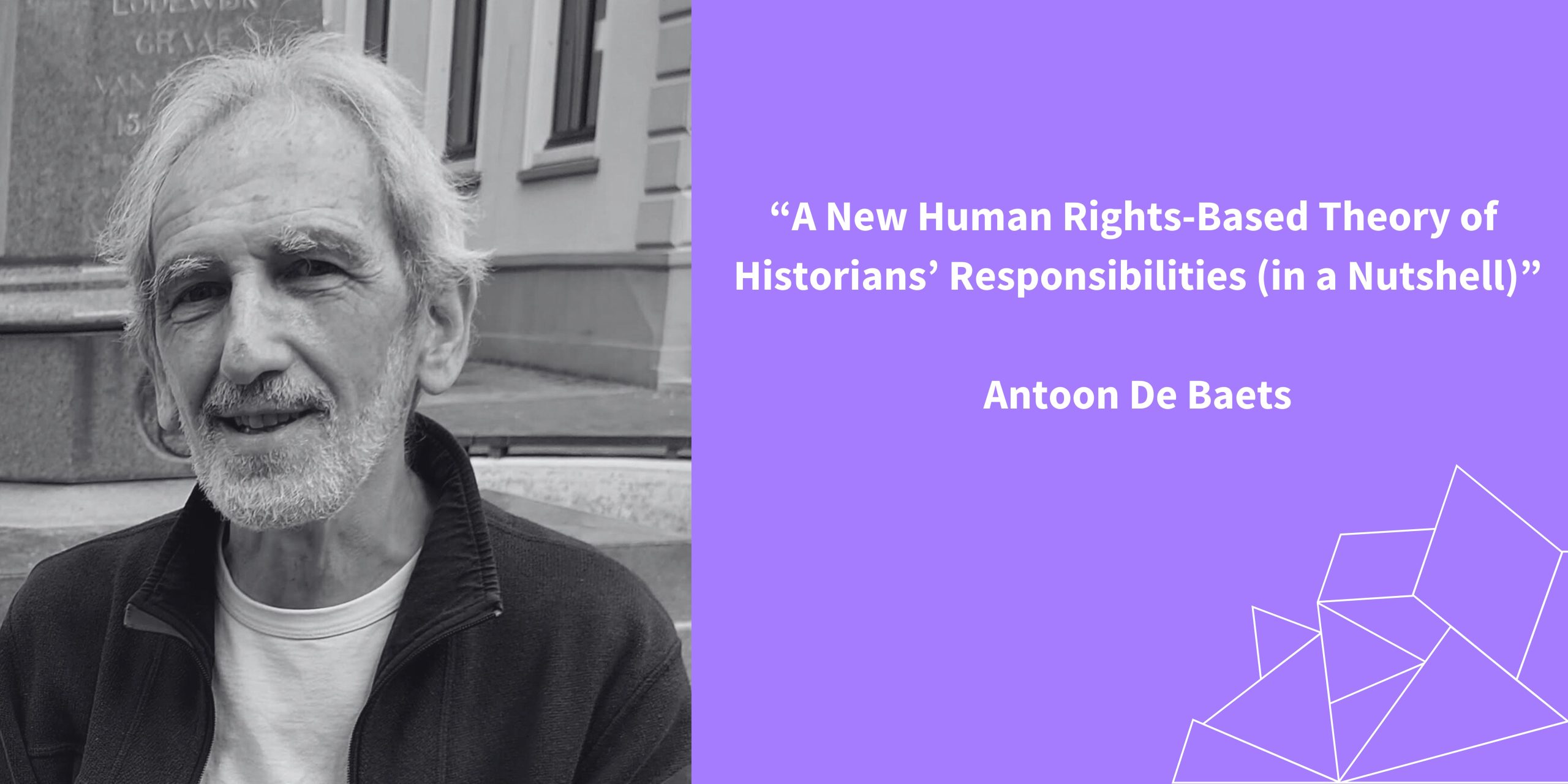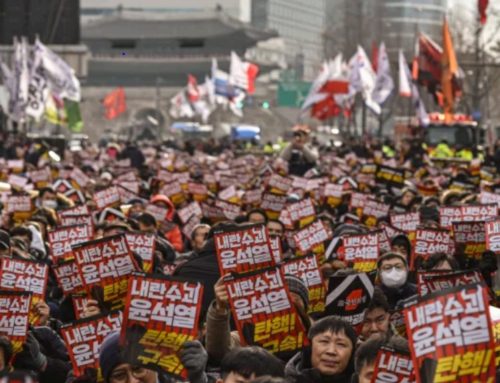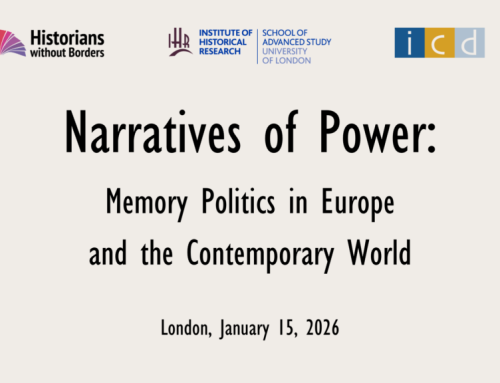This is the summary of an address given at the Third Forum on History Education, an intergovernmental project of the Council of Europe, on “Reinforcing Historical Awareness and Culture through Higher Education: Threats and Challenges” at the University of Bologna on 17 May 2024 during the final session on “Sustainability and Future Perspectives for History Education in Higher Education.”
Over the years, many principles have been proposed to organize the duties and responsibilities of historians. One such organizational principle emphasized their scope and subdivided them into professional, civic, social, cultural, political and other responsibilities. A second principle highlighted the addressees and subdivided responsibilities into responsibilities toward past generations, present generations, and future generations. A third principle foregrounded their performers and subdivided them into responsibilities of individual historians and responsibilities of the community of historians. A fourth principle, finally, emphasized the context and distinguished responsibilities in times of war, during national emergencies, and in peacetime. None of these organizing principles will be used in the new theory of historians’ responsibilities presented here, although they are compatible with it and many of their key elements return in it anyhow. Based on human rights, the new theory uses the nature of the historians’ responsibilities as its organizing principle.
The leading human rights instruments – the International Covenant on Civil and Political Rights (ICCPR) and the International Covenant on Economic, Social and Cultural Rights – refer to duties and responsibilities of States and individuals. Here the emphasis is solely on the duties and responsibilities of individuals, and of historians in particular. Although strictly speaking “duties” are general ethical or moral obligations and “responsibilities” obligations that are legally binding under existing international law, both terms are used interchangeably here. The starting point of the present theory is Article 19.3 of the ICCPR which stipulates that “The exercise of the rights [to freedom of expression] carries with it special duties and responsibilities. It may therefore be subject to certain restrictions …” This clause explains the origin of the responsibilities held by individuals: the latter have responsibilities because they have rights. Rights are prior to, and the rationale for, responsibilities.
There are two major types of responsibilities: responsibilities to oneself (or virtues) and responsibilities toward others (or relational responsibilities). As for the virtues, we might further distinguish recommended from essential virtues. Curiosity, modesty, and open-mindedness would be recommended intellectual or epistemic virtues. If historians do not comply with them, the quality of their work may suffer, but no great harm is done to others. In contrast, honesty (an ethical virtue) and accuracy (an epistemic virtue) are essential virtues because non-compliance with them (for example, when historians lie or act with reckless disregard for facts) may lead to harmful consequences for others – and for history as a discipline. Essential virtues therefore occupy a middle ground between recommended virtues and relational responsibilities.
The ethical framework, then, is clear: when historians act, they are protected by rights, guided by virtues, and restricted by responsibilities. Rights set claims, virtues set best practices, responsibilities set floors. Human rights theory distinguishes three main responsibilities of individuals according to their performative nature: a first responsibility requires individuals to respect, a second to protect, and a third to promote. This theory is applied here to one specific category of individuals: the historians.
- A responsibility to respect history and historians. The responsibility to respect history requires respect for the principle of scientific integrity when approaching the past as historians (the attitude of being honest and not acting corruptly). The responsibility to respect historians means respect for the rights of other historians and of students, and to ensure a fair discussion of contrary views.
- A responsibility to protect history and historians. This responsibility requires historians to oppose abuses of history and attacks on historians by third parties. Such abuses and attacks have harmful and chilling effects on the entire historiographical operation. The responsibility can be broken down into a series of steps ranging from preventing to investigating, disclosing, and sanctioning abuses of and attacks on history as well as expressing solidarity with those attacked.
- A responsibility to promote history. This responsibility requires the creation of favorable conditions for research and teaching, in the first place by establishing equitable research ecosystems and high-quality education curricula free from indoctrination. It also requires the arrangement, to the extent possible, of a responsible and dignified public debate about the dark sides of history.
Whereas the responsibilities to respect and to promote defend responsible history, the responsibility to protect fights irresponsible history. The responsibility to respect is the most important of all: it is a responsibility of result without which the responsibilities to protect and promote would become meaningless. In contrast, the responsibilities to protect and promote are responsibilities of effort and conduct governed by due diligence principles. Within the ambit of the responsibility to protect, the responsibility to prevent is weightier than the responsibilities to investigate, disclose, sanction, or express solidarity.
The responsibility to respect is absolute: it cannot be waived under any circumstances. In contrast, the responsibilities to protect and promote can be tempered by three factors. First, by the degree to which the rights of historians are respected. If historians’ rights are not, or not completely, respected, their responsibilities to protect and promote diminish to the same degree. Second, historians’ responsibilities to protect and promote are mitigated by the degree of autonomy they are granted by society. There can be no accountability toward society without some strong form of autonomy (including academic freedom). Finally, historians’ responsibilities to protect and promote are toned down by their potentially conflicting nature: historians fulfill several social and professional roles and belong to diverse local, national, and global communities – and, therefore, responsibilities emanating from these roles and communities may conflict and should be balanced against each other.
This is, in a nutshell, how a human-rights based theory of historians’ responsibilities looks like. It uses the logic of human rights theory to identify three fundamental, consistent, and coherent responsibilities of historians. They form the rock upon which other responsibilities can be built.
Author: Antoon De Baets,
EuroClio professor emeritus of history, ethics, and human rights, University of Groningen













